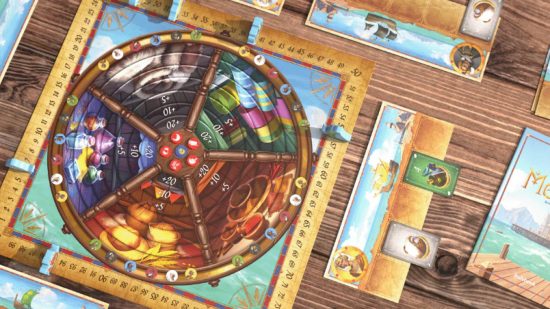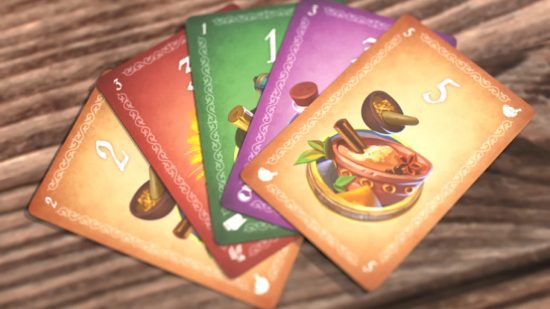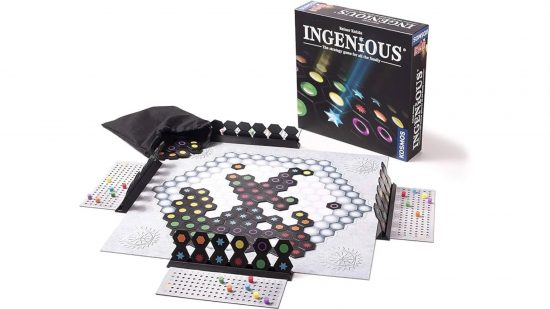Prolific German board game designer Reiner Knizia has created a fair few auction board games in his time, from Modern Art to Ra. But, while he’s excited for the new version of Medici, which came out in early April, Knizia suggests he probably wouldn’t design a new auction game today.
“Medici is wonderful, but I would not sit down again and make another three or four different auction games,” Knizia tells Wargamer. “I’ve done them, and repeating myself doesn’t make any sense. I have to go into new fields and try to make a contribution to new fields.”
So fans checking out Steamforged’s new version of Medici, which has come out nearly 30 years after the original, should expect a more-or-less classic take on the 90s board game. While he assures that the new version has seen plenty of playtesting, the designer says this was mainly to ensure the new components work well with the old gameplay.
“We didn’t want to upset this traditional classic game by introducing many new rules or introducing many changes because I think people love the game as it is,” Knizia explains. Instead, the focus for Steamforged was to make a wonderful production, making use of more modern methods of production to create a game with more color, better graphics, and a “richer feel”.
A mathematician before he embarked on a life in board games, Knizia was naturally drawn to auction mechanics. They “create an immediate interaction between the players. You’re always on the hook – what to do, how far to go – so it’s always exciting,” he says.
But he adds that it’s also easy to make a bad auction game. Auctions can easily be frustrating if they allow one player to snowball out of control, or overbid and upset the game’s balance. They need a stabilizing mechanism – like the limited cargo slots in Medici.
So why might Knizia be a bit reluctant to embark on more auction games now?
“You can never rest on any laurels,” he tells us. “The world changes, and our games are a mirror of the world. People find different things exciting today. They need to be grabbed by the theme, by the mechanism of the game.”
Knizia says he doesn’t want to blindly follow trends, and jokes that he’d rather be setting them. But he adds that while that’s something to strive for, you shouldn’t ignore trends.
Having worked in the board game industry for over 30 years, Knizia has seen plenty of genres emerge and become vogue, from legacy board games to deck building games. He suggests that while trends can come from new production possibilities, globalization, or Kickstarter, “many trends are random or by accident”.
Knizia suggests “it’s a lottery” whether a new mechanic will be nice for one game or form the basis for a whole new trend. Sometimes just a handful of games can overturn the received wisdom. There’s “an initial kick which is successful” and then the “whole crowd of publishers storms in and says ‘We want a piece of that cake’,” he explains.
The designer reminisces that once upon a time, co-op board games were pooh-poohed as boring, and before Blokus and his own Ingenious came out in the early 2000s, publishers were convinced that abstract board games couldn’t sell.
Despite implying that he’s left auction board games behind him, Knizia hinted to us that there is actually a new, secret addition to the Medici family coming, which fans can look forward to. “We have the card game, we have the dice game, but there’s a completely new game – an unpublished family member,” he says. “It’s a bit more challenging and demanding – I’m not allowed to say too much.”
For more tabletop content, check out the best strategy board games, or the best board games of all time.



